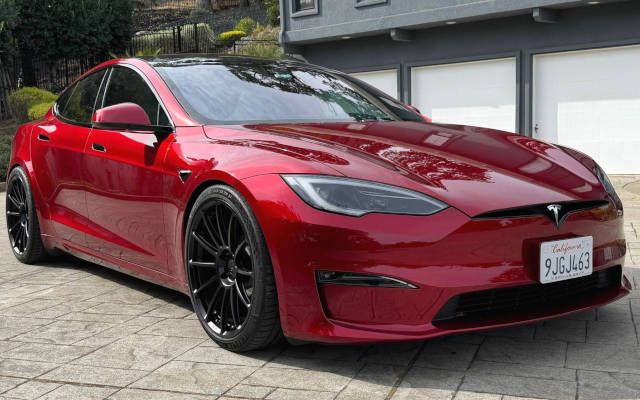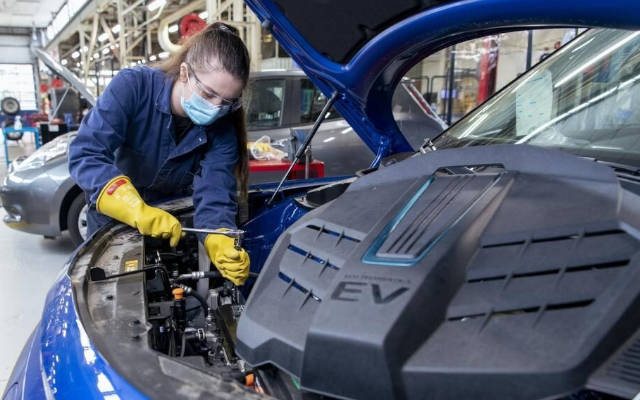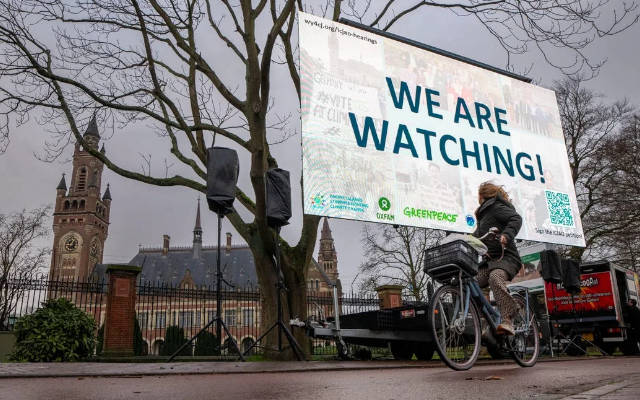 EDITOR'S PICK
EDITOR'S PICK
Average Used EV Costs Less Than Used Gas-Powered Vehicle, Study Says
26 Jul 2025 | Synopsis
 The average price of a used 1- to 5-year-old electric vehicle in June 2025 was $31,354 - about $1,200 less than the $32,525 average for used internal-combustion cars. According to iSeeCars data cited by Spectrum, EV used prices fell 4.8% year‑over‑year while gas-powered used car prices rose 5.2%. Teslas (Model S, X, Y) dominated the largest price drops. Value-conscious shoppers now find used EVs more affordable than gas cars.
The average price of a used 1- to 5-year-old electric vehicle in June 2025 was $31,354 - about $1,200 less than the $32,525 average for used internal-combustion cars. According to iSeeCars data cited by Spectrum, EV used prices fell 4.8% year‑over‑year while gas-powered used car prices rose 5.2%. Teslas (Model S, X, Y) dominated the largest price drops. Value-conscious shoppers now find used EVs more affordable than gas cars. Electric Vehicles Are Simply Better. Here's The Proof
26 Jul 2025 | Synopsis
 The article argues EVs are "an obvious upgrade over combustion machines - quieter, cleaner, more efficient and easier to maintain." The author contends that EV proponents have mistakenly framed the debate as a moral issue rather than highlighting these practical advantages. The piece presents EVs as superior technology based on performance and maintenance benefits rather than environmental arguments.
The article argues EVs are "an obvious upgrade over combustion machines - quieter, cleaner, more efficient and easier to maintain." The author contends that EV proponents have mistakenly framed the debate as a moral issue rather than highlighting these practical advantages. The piece presents EVs as superior technology based on performance and maintenance benefits rather than environmental arguments.EV Repairs Are Cheaper Than Gas Cars, But There's a Catch, Says Study
26 Jul 2025 | Synopsis
 A recent study found that while the maintenance of electric vehicles is cheaper than gasoline-powered cars, the catch is that repair costs can be higher. This is especially true for Teslas, which use large, expensive "gigacastings" and advanced technology. Additionally, service visits for EVs may take longer, and it can take more than one visit to resolve an issue. However, overall, EV owners can still save money in the long run due to lower maintenance and operational costs.
A recent study found that while the maintenance of electric vehicles is cheaper than gasoline-powered cars, the catch is that repair costs can be higher. This is especially true for Teslas, which use large, expensive "gigacastings" and advanced technology. Additionally, service visits for EVs may take longer, and it can take more than one visit to resolve an issue. However, overall, EV owners can still save money in the long run due to lower maintenance and operational costs.Healthy Environment Ruled A Human Right By World's Top Court, As Campaigners Hail 'Seismic' Win
25 Jul 2025 | Synopsis
 In a landmark July 23 advisory opinion, the International Court of Justice (ICJ) ruled that every nation has a legal obligation under international law to reduce greenhouse gas emissions, affirming that a clean, healthy, and sustainable environment is a fundamental human right. The court found that inaction on climate change - especially by high-emitting countries - could constitute an internationally wrongful act, potentially triggering liability or reparations for affected nations including climate refugees from island states."
In a landmark July 23 advisory opinion, the International Court of Justice (ICJ) ruled that every nation has a legal obligation under international law to reduce greenhouse gas emissions, affirming that a clean, healthy, and sustainable environment is a fundamental human right. The court found that inaction on climate change - especially by high-emitting countries - could constitute an internationally wrongful act, potentially triggering liability or reparations for affected nations including climate refugees from island states."UN Chief Guterres: "Fossil Fuels Running Out of Road"
25 Jul 2025 | Synopsis
 UN Secretary-General Antonio Guterres declared that renewables have reached a "turning point": over 90% of new projects are now cheaper than fossil fuels - solar ~41% cheaper, wind ~53% cheaper. In 2024, investment in clean energy hit $2 trillion, $800 billion more than fossil fuel investment. Guterres warned that fossil fuels "are running out of road," urging global leaders and tech firms to shift rapidly to clean power.
UN Secretary-General Antonio Guterres declared that renewables have reached a "turning point": over 90% of new projects are now cheaper than fossil fuels - solar ~41% cheaper, wind ~53% cheaper. In 2024, investment in clean energy hit $2 trillion, $800 billion more than fossil fuel investment. Guterres warned that fossil fuels "are running out of road," urging global leaders and tech firms to shift rapidly to clean power.
 Si Exclusive
Si Exclusive
Hydrogen's Flight Path: Fuel Cells, Turbines, and the Economics of Clean Aviation
10 Oct 2025 |  Aviation is shifting from Jet A to four fuel systems: electricity, hydrogen (fuel cell and combustion), SAF, and petroleum. Fuel cells suit short-haul aircraft; hydrogen combustion may power long-range jets. SAF bridges legacy fleets. Hydrogen costs - $5-$7/kg today, possibly $2/kg by 2040 - impact ticket prices and infrastructure decisions. Airport authorities, airlines, and governments will share deployment costs. Each fuel has distinct environmental pros and cons shaping aviation's net-zero future.
Aviation is shifting from Jet A to four fuel systems: electricity, hydrogen (fuel cell and combustion), SAF, and petroleum. Fuel cells suit short-haul aircraft; hydrogen combustion may power long-range jets. SAF bridges legacy fleets. Hydrogen costs - $5-$7/kg today, possibly $2/kg by 2040 - impact ticket prices and infrastructure decisions. Airport authorities, airlines, and governments will share deployment costs. Each fuel has distinct environmental pros and cons shaping aviation's net-zero future.
 11 Oct 2025 09:34:35 UTC |
RECENT PODCASTS
BYD Soars - Cheaper Tesla Models - The Bolt is Back - Rivian
SEARCH RSSTREAM
 48 New Postings In Past 24 Hours
48 New Postings In Past 24 Hours
Category:mobility
Region:Europe
Date:10 Oct 2025
Category:energy
Region:Global
Date:10 Oct 2025
Category:mobility
Region:SoAmerica
Date:10 Oct 2025
Category:energy
Region:NoAmerica
Date:10 Oct 2025
Category:mobility
Region:NoAmerica
Date:10 Oct 2025
Category:finance
Region:AsiaPacific
Date:10 Oct 2025
Category:policy
Region:NoAmerica
Date:10 Oct 2025
Category:finance
Region:NoAmerica
Date:10 Oct 2025
Category:mobility
Region:AsiaPacific
Date:10 Oct 2025
Category:policy
Region:NoAmerica
Date:10 Oct 2025